Silent Predator Read online
CONTENTS
About the Author
Also by Tony Park
Title Page
Copyright
Dedication
Prologue
Chapter 1
Chapter 2
Chapter 3
Chapter 4
Chapter 5
Chapter 6
Chapter 7
Chapter 8
Chapter 9
Chapter 10
Chapter 11
Chapter 12
Chapter 13
Chapter 14
Chapter 15
Chapter 16
Chapter 17
Chapter 18
Chapter 19
Chapter 20
Chapter 21
Chapter 22
Chapter 23
Chapter 24
Chapter 25
Chapter 26
Chapter 27
Chapter 28
Chapter 29
Chapter 30
Chapter 31
Chapter 32
Epilogue
Acknowledgements
Tony Park was born in 1964 and grew up in the western suburbs of Sydney. He has worked as a newspaper reporter in Australia and England, a government press secretary, a public relations consultant, and a freelance writer. He is also a major in the Australian Army Reserve and served six months in Afghanistan in 2002 as the public affairs officer for the Australian ground forces. He and his wife, Nicola, divide their time between their home in Sydney and southern Africa, where they own a tent and a Series III Land Rover. He is the author of Far Horizon, Zambezi, African Sky and Safari.
Also by Tony Park
Far Horizon
Zambezi
African Sky
Safari
SILENT
PREDATOR
TONY PARK
First published 2008 in Macmillan by Pan Macmillan Australia Pty Limited
1 Market Street, Sydney
Copyright © Tony Park 2008
The moral right of the author has been asserted.
All rights reserved. No part of this book may be reproduced or transmitted by any person or any entity (including Google, Amazon or similar organisations) in any form or by any means, electronic or mechanical, including photocopying, recording, scanning or by any information storage and retrieval system, without prior permission in writing from the publisher.
National Library of Australia
Cataloguing-in-Publication data:
Park, Tony, 1964.
Silent predator/author, Tony Park.
Sydney: Pan Macmillan Australia, 2008.
ISBN 9781405038515 (pbk.)
Terrorists–Fiction.
Kruger National Park (South Africa)–Fiction.
South Africa–Fiction.
A823.4
The characters and events in this book are fictitious and any resemblance to real persons, living or dead, is purely coincidental.
Typeset in 11/15 pt Birka by Post Pre-press Group, Brisbane
Printed and bound in Australia by McPherson’s Printing Group
Cartographic art by Laurie Whiddon, Map Illustrations
Papers used by Pan Macmillan Australia Pty Limited are natural, recyclable products made from wood grown in sustainable forests. The manufacturing processes conform to the environmental regulations of the country of origin.
These electronic editions published in 2008 by Pan Macmillan Australia Pty Ltd
1 Market Street, Sydney 2000
The moral right of the author has been asserted.
All rights reserved. This publication (or any part of it) may not be reproduced or transmitted, copied, stored, distributed or otherwise made available by any person or entity (including Google, Amazon or similar organisations), in any form (electronic, digital, optical, mechanical) or by any means (photocopying, recording, scanning or otherwise) without prior written permission from the publisher.
Silent Predator
Tony Park
Adobe eReader format 978-1-74198-183-4
Microsoft Reader format 978-1-74198-184-1
Mobipocket format 978-1-74198-185-8
Online format 978-1-74198-186-5
Epub format 978-1-74262-373-3
Macmillan Digital Australia
www.macmillandigital.com.au
Visit www.panmacmillan.com.au to read more about all our books and to buy both print and ebooks online. You will also find features, author interviews and news of any author events.
For Nicola
Prologue
Today
Tom Furey groaned.
Each beat of his heart sent a dart of pain to his head as his brain tried to break through the bone of his skull. His tongue was so swollen and dry his first thought was that he might choke. He was aware of a bright light shining on the other side of closed eyelids. He opened his eyes and blinked, the small movement eliciting another moan.
There was an almost mechanical noise beside him, like a motor with a faulty exhaust. Snoring. He turned his head – more suffering – and saw the woman lying on her back, mouth agape, her bare breasts rising and falling. The tangle of sheets was across her lower legs. Like him, she was naked.
Daylight.
‘Shit!’
He groped on the side table for his watch and mobile phone. It was six am and the bright African sunlight was streaming in through the sliding glass doors. ‘Shit!’ he said aloud again. Ignoring the ache behind his eyes he swung out of the king-size bed, grappled his way through the ceiling-to-floor mosquito net and hopped on one leg while he pulled on his shorts. He grabbed the mobile phone and checked it. Not only had the alarm not gone off, it wasn’t even set.
Tom buckled his belt and slipped his nine-millimetre Glock 17 into the circular pancake holster above his right hip. He strapped on his watch and checked the time again. Two minutes past six. ‘Shit.’
The weight of his pistol was balanced on his left side by an Asp extendable baton, a spare magazine of ammunition and a Surefire torch, all in black leather pouches. He stuffed his remaining two spare magazines in his shorts pocket, along with his Gerber folding knife. Despite the rush he would have felt naked leaving the room without any of his personal kit.
He pulled on a blue polo shirt and left it untucked so that it covered the equipment, then forced his feet into trainers with no socks. Thank god, casual dress was the order of the day.
With nothing more than an angry shake of his head at the sleeping woman, he barged out the door and along the raised walkway of darkly stained wooden logs that wound through the thick thorny bushes behind and between each of the separate luxury suites of the safari lodge. He paused to knock on the door of the unit next to his. ‘Bernard?’ he called. No answer. Of course there bloody well wouldn’t be an answer. The advisor was ex-Royal Navy. He wouldn’t be late for duty. Tom jogged on.
The morning air was still cool, but the sun was already hot on his face as he glanced out across the Sabie River, its smattering of granite boulders glowing pink in the dawn’s rays. A hippo grunted, mocking him with its deep belly laugh as his shoes pounded the deck.
He slowed to a walk, to catch his breath and maintain some show of dignity as he entered the sumptuous reception area, where early morning tea and coffee and rusks and fruit were laid on a long table beneath the thatched cathedral-style roof.
‘What’s going on? You’re late.’ Inspector Sannie van Rensburg looked at her watch and frowned.
The South African minister was talking to an aide, an empty coffee cup in his hand. He looked at Tom and then beyond him, down the walkway.
Tom motioned her aside with a hand on her elbow. She shrugged off his touch. ‘Where’s Greeves?’ he whispered.
‘That�
��s what we want to know. Not only are you late, but he hasn’t shown up – neither has his policy advisor.’
He saw the naked disapproval on her face, of him as well as of his tardiness. She must have guessed what had gone on the night before. It was no time to think about what she thought of him. ‘He must be on the phone to the UK. I’ll go and check on him.’
‘I already did that,’ she said. ‘There was no answer.’
‘Why didn’t you come and find me?’ he asked.
‘Ag, I’ve got my own man to look after. I can’t be running around after you, Tom.’ Her Afrikaans accent, which he’d found appealingly exotic at first, grated on his ears. He strode back down the walkway to the suite of the UK Minister for Defence Procurement. Tom prayed that he was right, that The Honourable Robert Greeves was on the phone to his immediate superior, the Secretary of State for Defence, or a senior bureaucrat on some urgent matter of State, and that was why he hadn’t answered the door and was late.
He felt physically sick, but didn’t know why. He’d had only one beer the night before. He came to the third suite, took a deep breath to quell the dizziness and steady himself, and knocked. No answer.
‘Sir? It’s Tom,’ he called.
He waited for exactly a minute and knocked again. Nothing. He pulled out his mobile phone and dialled the minister’s private number. It was for emergencies only, but Tom could feel his pulse rate rising. Straight through to voicemail. He tried the policy advisor’s mobile. It rang out and he heard Bernard Joyce’s cultured voice on the message.
Tom went on to Bernard’s suite, even though he had already tried it once, and knocked on the door. ‘Bernard?’ Nothing again. He thumped harder. ‘Bernard!’
He jogged down the decking to his own unit, opened the door, strode in and called Greeves’s suite. While he waited he saw, through the haze of mosquito netting, the woman still sprawled there. If she was awake she was hiding it. He cursed himself – his weakness. The landline rang out. No answer. ‘Shit,’ he said. ‘Stay cool.’ There was no answer in Bernard’s suite. They weren’t talking on their room phones.
Tom headed back to reception. He ignored the South African policewoman’s enquiring look and went to the duty manager, a young white guy called Piet. ‘I need the key to Greeves’s suite.’
‘But, Tom, man, that’s highly irregular, can’t we just –’
‘Now.’ The man obeyed this time, unquestioning.
Tom forced a smile for the South African Defence Minister, Patrick Dule, who was having a hard time hiding his impatience. Greeves wasn’t the kind to go off with Bernard for an impromptu morning stroll. Tom had learned in a very short time that when a schedule was made he stuck to it, and woe betide anyone who was a minute late.
Tom jogged back to Greeves’s suite. Instinctively, he raised his polo shirt, so that the butt of his Glock was exposed, and easier to draw. ‘Mr Greeves, sir?’ he called again.
He heard footsteps and spun around. It was her. Sannie held up a skeleton key of her own. Great minds, he thought to himself, without mirth. ‘Go to number four – Bernard Joyce’s suite. There was no answer there, either. Let yourself in.’
She nodded. No time for smart-mouthing any more.
He let himself into the minister’s luxurious room. It was identical to his in its safari chic décor and opulence. He took in the signs immediately. The fallen lamp stand, the sheets in disarray, the tangle of mosquito netting on the floor, the bloody palm print on the open sliding door. He drew his pistol. A laptop computer was open, but face down. Greeves’s wallet and mobile phone, switched off, on the bedside table.
Tom moved quickly through the rest of the suite, checking the bathroom and toilet. No signs of the man, other than his toiletries and some clothes in the bathroom. He went back outside and saw Sannie running along the boardwalk.
‘Joyce,’ she panted. ‘He’s gone. Signs of a struggle. It doesn’t look like it was an animal attack.’
Tom shook his head. ‘Greeves is gone too. Wallet full of cash and mobile phone are by the bed, so it wasn’t money they were after.’
‘Oh, dear god,’ she said, and it was more prayer than blaspheming.
And Tom Furey needed all the prayers he could get, because he’d just woken to a protection officer’s worst nightmare.
1
Eight days earlier
‘I need to piss.’
Tom smiled, even though it was too dark in the back of the transit van to see the young constable’s face. He sighed and whispered, ‘You should have gone before we left.’ He’d been waiting for this – as the boy had been fidgeting for the past hour.
‘Yes, Dad.’
‘Watch it, Harry,’ Tom said. He kept his eye on the house, number fourteen, staring at it through the peephole in the side panel of the van. The light was still on in the front room of the nondescript pebble-dashed semi in the quiet Enfield street. He wondered if the neighbours had any idea what was going on behind that green door. They’d be mostly commuters, he reckoned, with safe jobs. Mid-level office workers, secretaries, tradesmen – and they would have a fit if they knew they were living in the same street as a bunch of people smugglers. Someone must have noticed something, though, or they wouldn’t be here. Londoners had been jolted out of their apathy after seven-seven, the suicide bombings on the tube and the buses, and curtain twitching sometimes paid off.
‘It’s only the truth, Tom. You are old enough to be my bleedin’ father.’
‘Perhaps I am. I was in uniform in Islington in the eighties. Your mum ever go to a Bryan Ferry concert?’
‘Now you’re making me sick.’
At the far end of the cramped space, Steve, the civilian information technology expert, looked over the top of his magazine. Unlike Harry, Steve, whom Harry had quietly dubbed ‘the Anorak’ by virtue of his job rather than his expensive overcoat, could keep quiet in an op.
Tom Furey sat on a fold-out canvas and tubular metal camp stool, which he had brought with him along with a Thermos of tea, sleeping bag, sandwiches, The Times crossword and a paperback novel. He pointed to the last item he’d brought. ‘What do you think that empty peanut jar in the corner is for? Or did you think there’d be a chemical toilet in here?’ Tom shook his head, but kept his gaze focused on the front door of number fourteen.
‘None of this is what I expected,’ Harry said. ‘It’s hardly like on the telly, is it? No electronic monitoring, no bank of TV sets, no infra-red night vision surveillance camera. Certainly no bleedin’ chemical toilet. Just a naff old van lined with bloody foam and plywood and a peephole. God save us if this is the front line of the high-tech war on terrorism. And I still need to piss.’
‘I got a bladder infection from sharing my piss jar with a bloke during a surveillance op in ’92, watching an IRA safe house in Kilburn, and I’m not going to make that mistake again. Like pissing razorblades, it was.’
‘Oh dear . . . the IRA. Tell us what else you did in the war, Dad.’
The members of the old Metropolitan Police Special Branch – also known as SO12 – had a wide array of skills which were in demand in the new fight against terrorism, and the reason they were sitting in the van was because the word was that the targets inside number fourteen – Pakistani gentlemen – had possible links to al-Qaeda. As well as prostitutes and illegal workers, their clients were believed to include a bomb maker or two.
Tom had joined the Met twenty-one years earlier, at the age of twenty-two. After his sixteen-week training course at Hendon he’d graduated as a police constable and served his probation in Brixton. Three years later, with the IRA’s mainland bombing campaign in full swing, he’d applied to join Special Branch. Being the first on the scene after a bomb had severed an army recruiter in two outside his shopfront had galvanised Tom into taking this next step in his career.
After passing a selection board he’d gone back to Hendon for eleven weeks of training as a detective. As a detective constable he’d done time on B Squad – the Ir
ish squad – and on surveillance on S Squad. Working undercover, often dressed in the foul-smelling rags of a vagrant on the cold streets of London, spending time holed up in abandoned buildings and cold, darkened vans, he’d honed his observation skills and learned patience.
‘Give us the peanut jar,’ Harry said.
‘Quiet.’
After passing his sergeant’s exam Tom had reluctantly gone back into uniform – the obligation came with the promotion. He spent time in his new rank at Enfield – another reason why he was once more on the town’s streets. He knew the area better than most of the others on this hastily cobbled together operation.
Eventually he’d made his way back to Special Branch, where he believed he belonged and would see out his career. After completing firearms training he’d gone to A Squad, where he became a qualified protection officer. Like anyone else in the job he cringed at the term bodyguard, but that was how a civilian or, worse, a newspaper reporter, would have described him.
There had been innumerable wins for Special Branch against the Irish, but it was some high-profile cases of alleged heavy handedness – including one that was made into a movie – which made the politicians want to rein in the Branch and soften its image. Reorganisations after September 11 and the London bombings of 7 July 2005 had created a new unit to deal with terrorism, but had also removed the structure whereby detectives could transfer easily from squad to squad in the Branch, developing and practising new skills while staying under the same command.
The latest round of restructuring had hived off specialist protection – Tom’s specialty – into a new unit, SO1, under the Special Operations umbrella. Police counter–terrorism operations were now handled by SO15.
Tom Furey had provided protection for a plethora of politicians, a former prime minister, a couple of European monarchs, African dictators, and an Arabian prince or two. Visiting dignitaries were assigned British policemen to guard them when in the UK, and Tom, who had no ‘principal’ of his own to protect these days, was on a roster of unattached protection officers who waited their turn potentially to take a bullet for a foreign VIP. He liked the work – he met interesting people and occasionally travelled abroad – but if he was honest with himself it was no high-minded calling which kept him in this job. It was the money. With shift allowances he made two to three times what he would as a detective elsewhere in the Met. The downside was that divorces were common in his line of work. He and Alex had been able to cope because they’d spent their entire marriage out of sync when it came to working hours. They’d compensated with some wonderfully luxurious overseas holidays, made possible by their combined wages which were nothing to sneeze at.

 The Cull
The Cull Blood Trail
Blood Trail Red Earth
Red Earth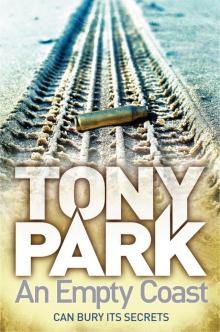 An Empty Coast
An Empty Coast Dark Heart
Dark Heart African Sky
African Sky The Delta
The Delta Captive
Captive Ivory
Ivory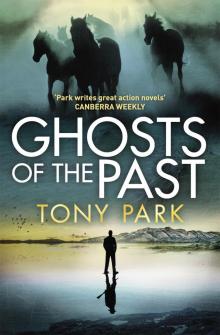 Ghosts of the Past
Ghosts of the Past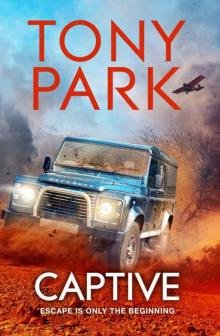 Captive_A High-octane And Gripping African Thriller
Captive_A High-octane And Gripping African Thriller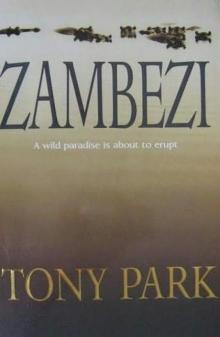 Zambezi
Zambezi Silent Predator
Silent Predator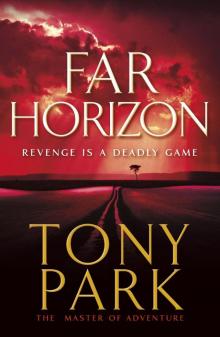 Far Horizon
Far Horizon African Dawn
African Dawn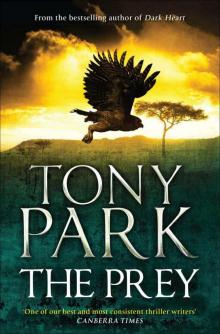 The Prey
The Prey Safari
Safari